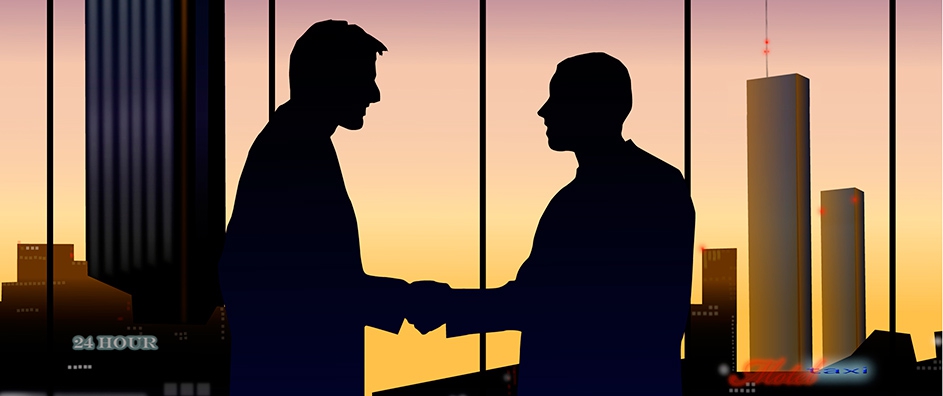The views expressed in our content reflect individual perspectives and do not represent the authoritative views of the Baha'i Faith.
This is Part 5 of the fiction story Giving the Devil His Due :
[Previously in “Giving the Devil His Due”, would-be horror writer Bert Wells is saved from committing suicide by a stranger who claims to be the Devil and who makes him a deal—he will become rich and famous if he will only set his hand to writing what’s hot. Bert takes the offer, never believing it will happen.]
If anything is to be done, let a man do it, let him attack it vigorously! A careless pilgrim only scatters the dust of his passions more widely. — Gautama Buddha, Dhammapada, 22: 313.
“Uh-huh.” Bert gave the little man a hard look. “Oh, what the Hell—you’ll pardon the expression. Okay, sure. I’ll bite.” He held out his hand for the guy to take and was embarrassed to realize he expected it to be hot. It wasn’t, of course.
The guy chuckled. “Everybody expects me to burn ‘em. More bad press. You could give me a little help in that department, if you’re so inclined.”
“Oh…sure.”
“Well, nice doin’ business with ya, bwana.” He gave a mocking salute and turned to go.
“Hey, wait a minute. Can I ask you something?”
“Sure.”
“Why do you have a Brooklyn accent?”
“Damned research department. I asked for Brookline.” He shook his head and moved off into the dark. “Putzes.”
Herbert skipped Writer’s Group that night. He went home and read part of a cyber-shock novel. Utter piffle. He could write it with his mind closed. He thought he’d try. He skipped the Group for the next two months, too, busy working on the novel.
He finished the book and sent it off to an agent he knew was hot into the genre, then missed the next month with the Writer’s Group because he was a little ashamed of what he was doing.
At the end of the month, the agent sent Bert contracts. The novel gave him dry heaves, he said. It was great. Bert started writing short stories. He was too busy to go to any Writer’s meetings and felt it was better to write than to merely talk about writing.
Within two weeks, the agent called and told Bert his novel, NIGHT OF STEEL DEATH, was going up for auction between three major houses. Bert dropped by the Espress-O just long enough to tell his old literary cronies he had a bid war going for one of his books (he neglected to mention the title or genre), then took himself out for dinner.
In the time before the auction, Bert finished four cyber-shock short stories and mailed them off. The novel sold for a seven-figure advance. The stories went for $3,000 apiece. Bert quit his job and began his second cyber-shocker, throwing in a twisted version of the love story from OF BLOOD DARK SKIES.
He didn’t see the Writer’s Group again; by now he considered them a bunch of hopelessly self-involved losers. He was surprised to find he didn’t even miss them.
He bought a house in Marblehead, started an investment portfolio and got a girlfriend and a dog. He gave a substantial amount to charity and wore his “Tune It Or Die” T-shirt proudly. He did the workshop circuit, TV talk shows, book tours, horror fiction conventions. After a few tries, he gave up attempting to weave his philosophy of life into these endeavors and talked shock-shop to the delight of his ardent fans. After a while, the philosophy seemed pretty sophomoric. He was visible—that was what really mattered.
His career was long and successful by almost any standards. Only his ex-writing buddies spoke of selling out. He didn’t know that, of course, he never saw them.
 He was ninety-five when it began to occur to him that his time might soon be running out. He half expected to look up one day and see the Devil—in more traditional garb—beckoning him through the fiery gates. By his ninety-sixth birthday it had become an obsession. It colored his work, showing up as a fixation on the mortality of all flesh, but that seemed only to increase his popularity.
He was ninety-five when it began to occur to him that his time might soon be running out. He half expected to look up one day and see the Devil—in more traditional garb—beckoning him through the fiery gates. By his ninety-sixth birthday it had become an obsession. It colored his work, showing up as a fixation on the mortality of all flesh, but that seemed only to increase his popularity.
He realized that, at this point in his career, he could say anything he wanted, but found, perversely, that he had very little to say.One crisp winter evening he took a nostalgic stroll by the crystal waters of the River Charles and waxed retrospective. He had gone through his collection of thick scrapbooks that evening, ensconced in the artfully lit recesses of his “trophy room.” It occurred to him then that, while his reviewers raved about his novels, using words like terse, horrific, paralyzing, disturbing, electrifying, not one had ever said his work was thought-provoking or illuminating or even passionate.
Still, he was earning millions every year, while the most successful member of his old Writer’s Group was pulling down a paltry 90k per annum as a college professor of creative writing, and turning out thick, thoughtful science fiction tomes.
He watched the lights from the shoreline promenade cavort among the ripples of the Charles and wondered what life would have been like if he’d kept writing books like OF BLOOD DARK SKIES—books with heart and soul and relevance.
“Hell,” said a voice behind him. “It would’ve been pure hell, kid.”
















Comments
Sign in or create an account
Continue with Googleor